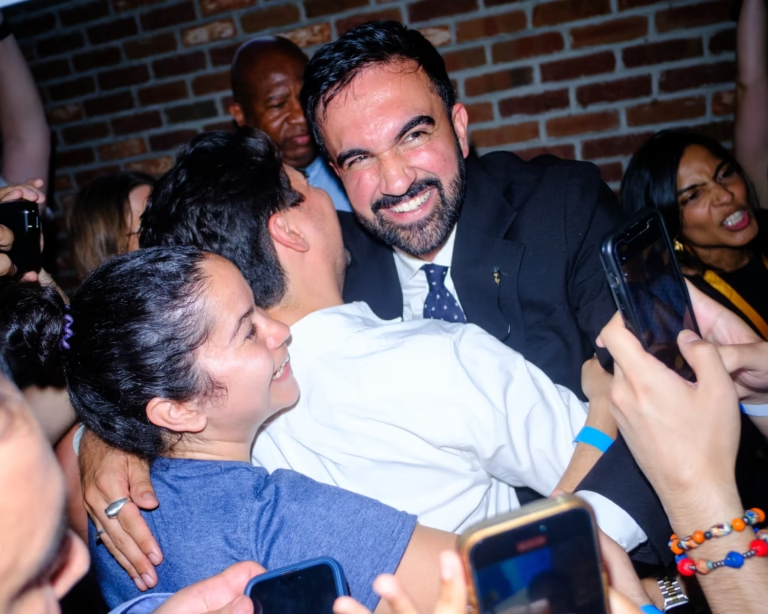Zohran Mamdani has achieved a landmark victory in New York City’s mayoral race, but the real work begins now. The 34-year-old democratic socialist campaigned on bold promises, including freezing rents and providing free childcare, aiming to make New York more affordable for residents.
His campaign drew global attention and energized local politics, attracting nearly 100,000 volunteers and support from progressive activists across the country. Mamdani’s platform reinvigorated the left beyond the city, inspiring other progressives to consider running for office and potentially shaping the Democratic Party ahead of next year’s midterm elections.
For many New Yorkers, Mamdani’s win represents hope amid challenging times. “I think for New Yorkers, it is a small light in what has been an overwhelming era of darkness,” said Usamah Andrabi, communications director at the Justice Democrats organization.
The scale of expectations, however, presents a daunting challenge. Residents are eager to see immediate action on issues that affect their daily lives, from housing costs to childcare affordability. Mamdani now faces the task of translating campaign pledges into concrete policies while navigating the complexities of city government.
During his campaign, Mamdani emphasized the need for structural changes to address long-standing inequalities. Advocates note that implementing such reforms in a city of more than eight million residents will require careful planning, collaboration with city agencies, and negotiation with stakeholders who may resist change.
Housing affordability remains one of the most pressing concerns. Rent freezes and tenant protections are central to Mamdani’s platform, but critics question how these measures will be enforced and funded. At the same time, expanding access to free childcare involves logistical, financial, and regulatory challenges that the new mayor will need to overcome.
Despite these obstacles, supporters are optimistic about Mamdani’s ability to deliver. His campaign demonstrated a strong organizational capacity, mobilizing volunteers and resources on a scale rarely seen in recent New York City elections. This energy may prove crucial as he begins turning promises into action.
Political analysts note that Mamdani’s approach could reshape local governance. By prioritizing social equity and affordability, he may influence policies and debates at both state and national levels. How effectively he navigates these pressures will determine not only his success as mayor but also the future direction of progressive politics in the U.S.
The coming months will be critical as Mamdani transitions from candidate to policymaker. Observers will watch closely to see how he balances ambitious reforms with practical constraints, ensuring that bold promises translate into tangible benefits for New Yorkers.
For a city known for its high costs of living and economic disparities, Mamdani’s tenure could signal a significant shift in urban governance. His ability to deliver meaningful change will shape public trust in progressive leadership for years to come.
While the victory is historic, Mamdani himself acknowledges that campaigning is only the first step. Turning vision into reality will require persistence, innovation, and collaboration with a diverse city population. Success will not be immediate, but the stakes could not be higher for New York City residents eager for change.







